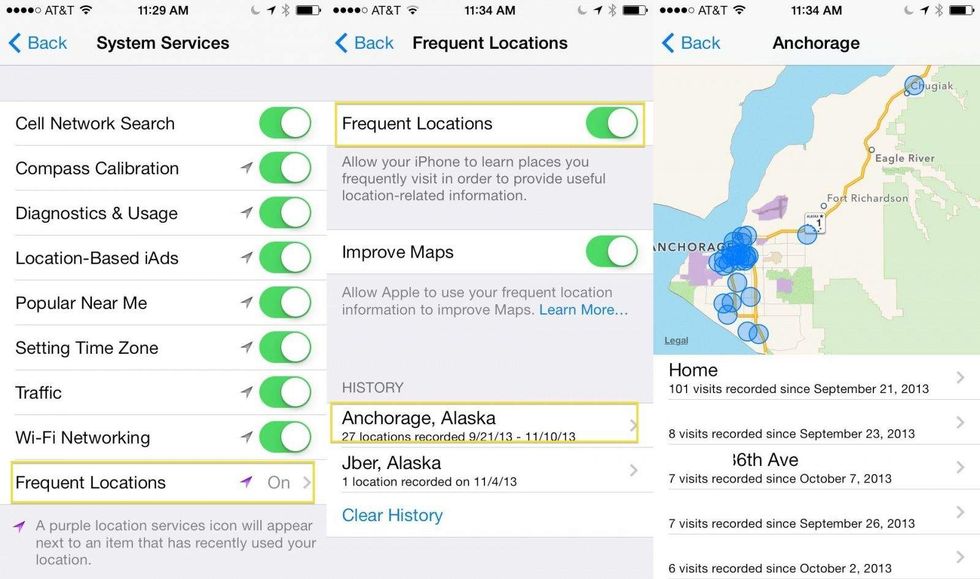Internet security is one of the least discussed topics in America today. Have you ever talked about something, and you were near your technological devices, and suddenly you started seeing advertisements that were the exact things you were talking about?
When I was moving and looking for a new apartment, I would talk to my mom (and of course I was on my cell phone) about the area I needed an apartment and the price range. At the time, one of the new things on social media were the advertisements that started popping up on the app Instagram. Well… you can guess it. Suddenly a random advertisement popped up for an apartment complex, in the area I was looking for, and the price range I described.
This experience caused me to do a bit of research, and my findings surprised me more than anything. Here's what I found, and I've included outside research and links to where I found this information:1. Your Smart TV is smarter than you think.
Technology is amazing, and we've surpassed so many horizons with the new advances we have today. One of the luxury items that have become a hot piece of merchandise was the creation and development of Smart TV's. These TV's ranged from being able to access internet and different popular applications (such as Netflix and Hulu), but they also had the ability to take verbal commands and functions as the user told it to do so.
With this new development of voice controls, Smart TV developers did not mention one tiny, 'itty bitty' detail that should have been disclosed to EVERY Smart TV purchaser. Along with the voice controls, the Smart TV's were recording people's conversations while they were talking among themselves; meaning the TV was listening even if it was not receiving a command.
Without disclosing any information to the consumer, these Smart TV developers would sell their new information/data with advertising agencies that would take the data to, you guessed it, put out specific advertisements for each individual viewer, or what would most likely appeal to them at the time.
One example of a company getting in legal trouble with this was Vizio, where they paid over 2 million for not making their consumers aware, or making this a consent choice. Now you can change this in privacy settings, when before. you had no idea.
Article for more information: http://www.telegraph.co.uk/technology/2017/03/08/s...
2. I hope you know who Edward Snowden is...
Think your smart phone is only good for Instagram and Facebook? Do you think the only way for someone to see you is through all the selfies you post? WRONG AGAIN.
I'd like to introduce you to one of my favorite men in American history, and his name is Edward Snowden. This man was a National Security Agency contractor (so yes, he worked with America's intelligence department in the government), but turned into a 'whistle blower' after leaking information about the government using smart cellular devices to study the population in an unknown experiment for social behavior (and, of course, advertising).
Today, Mr. Snowden faces charges of espionage and other felonies by the Unites States Government.
Isn't it amazing that a man was warning people, but now is facing one of the most punishable felonies in the United States? You can read more on this in the link below.
Edward Snowden Link: https://www.nytimes.com/2016/09/15/opinion/pardon-...
3. Your iPhone has a "frequent locations" setting.
Honestly I found this bit of information off of Facebook a long time ago, but it turned out to be true. On iPhones (I am not sure about other cellular devices or companies) there is a Frequent Locations option in its settings. With this feature, your iPhone/cellular device collects your current locations, finds out your most visited places, and records the in the Frequent Locations part. And yes, it will show your exact address (street number, zip code, house number, etc.), so if your phone is stolen anyone could access where your house is located.
Here's a picture so you are able to disable this feature:
Here is the link to the article for more information: http://www.businessinsider.com/iphone-frequent-loc...
So if you worry about internet security, here are a couple more tips that I've been told by people close to me to help also:
1. Use a sticky note to cover your computer/laptop's webcam when not in personal use. You can also do this with phones, but stickers are a cuter/cooler option.
2. Pay attention to your technological device's privacy settings, and also read the disclaimers before future purchases. Disclosed information is important for self awareness.
3. DO NOT put personal cards on any internet shopping website.
4. DO NOT write anything on the internet that you do not want to be public, because it will be public forever.
Internet security is a topic that is not discussed enough, and the more informed people are, the safer everyone's security preferences are. Stay informed, do research, and protect yourself and others.
"Knowledge is Power." -Sir Francis Bacon




















